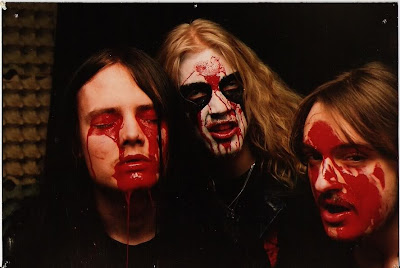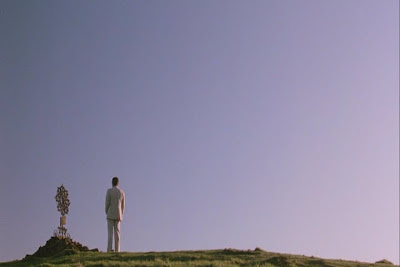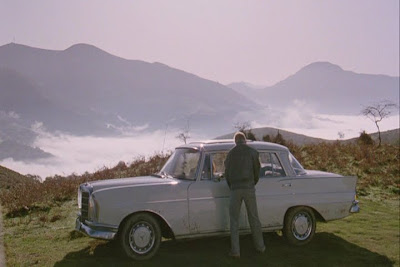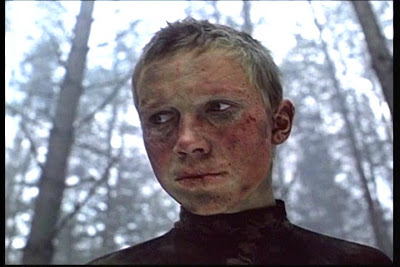
The notoriety of the Norwegian black metal scene of the late 80s/early 90s is something which typically precedes the music itself. Whilst digging around for clips about it, some musician (don't ask me who because the group of bands associated with this stuff, good or bad, is fucking mammoth) mentioned that one of the ironies of black metal becoming a trend is that it was never meant to be anything more than self-gratification for the people who were making the records. Certainly never commercial. And yet in 2009 we get Until the Light Takes Us, probably the documentary on the Norwegian black metal scene with the biggest release to date.
The interview I read with directors Aaron Aites and Audrey Ewell before watching gave me a fairly good idea of what to expect i.e. "they sound like art hipsters"
I didn't love it, but there are certainly parts that I enjoyed.
Gylve "Fenriz" Nagell from Darkthrone and Varg Vikernes of Burzum immediately chalk up as the film's most interesting narrators. Fenriz seems somewhat on edge but amiable, genuinely unnerved by what "black metal" has come to mean and represent today. Vikernes is engaging and well-spoken as usual (which is part of what makes him so bothersome when you know about him and his personal beliefs).
I've heard people say that this isn't a film to watch if you don't know anything prior to, but I tend to think it's one that will actually convince people who've never heard of these bands to look into them. The major topics (Dead's suicide, Euronymous' murder, the church burnings, Vikernes' trial/imprisonment) are discussed, but not belabored or moralized as they seem to be in most other documentaries or specials that I've seen. Fenriz's visit to a Swedish art exhibit on black metal was a highlight for me. Hellhammer from Mayhem and Faust from Emperor also fill in some details.
But then there's the rest of the film. In that same interview, Aites and Ewell mention that they would've never made the Until the Light Takes Us had they not been able to get both Fenriz and Varg. Thankfully they were, but the contrast/connection they seem to want to make between the two falls slightly flat. It starts with each briefly mentioning each other, their interviews cut back and forth, but then it's sort of forgotten about, returning in a scene where Fenriz watches footage of Varg talking about him. Something similar happens when the issue of Christianity (anti-Christian beliefs were one of, if not the binding factor for these bands) and its destruction of culture is brought up. Several of the interviewees briefly remark on it, then we're given a really shitty montage of close-ups of religious statues. Aites and Ewell are walking into a goldmine. They've got some of the best people possible to discuss the history of this movement, they've got big ideas, unfortunately what's left to them outside of these people is handled amateurishly.
However, the one-on-one interviews themselves are the majority of the film and they're very solid. Until the Light Takes Us is worth watching for them alone. It's a pretty fascinating story not only because of the scandals that occurred, but how young, how dedicated, and how talented these people were and how radical some of their ideas (and certainly their music, not simply thematically, but technically) were at the time. It was an all consuming lifestyle, not some kind of trend. And yet this film is now being served up to people like myself who were in kindergarten in 1993.
P.S. Taking bets on whether or not the inclusion of that Harmony Korine bit is meant to be taken seriously or as a grim response to Fenriz's lamentation of black metal becoming trendy.
Also it's best if we not talk about the Frost stuff. At all. Except this.





















